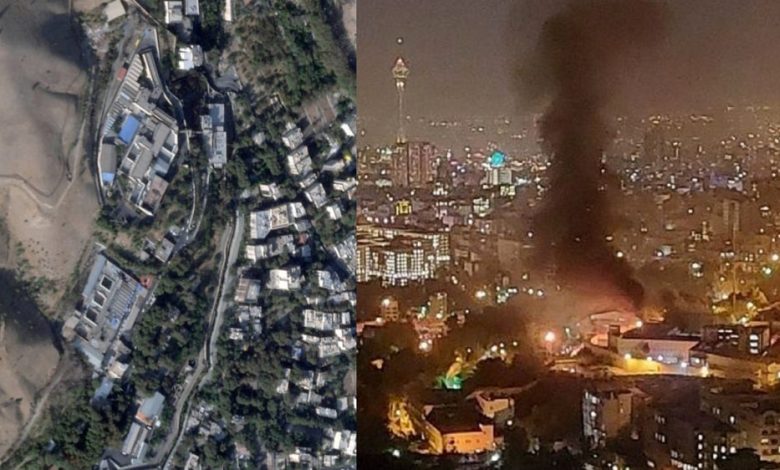Iran Regime Prevents Treatment of Prisoners Wounded in Attack on Evin Prison

Written by
Secretariat of the National Council of Resistance of Iran (NCRI)
Iran Protest-No. 104
NCRI logoCall for immediate action to save the lives of uprising detainees and formation of an international investigation mission to visit Iran’s prisons
Twenty days after the brutal attack on Evin prison, the regime is still preventing the treatment of prisoners who were wounded in that attack. On the other hand, as the nationwide uprising of the Iranian people is approaching its 50th day, and more and more youths are arrested every day, the uprising detainees face even more dire conditions.
#Breaking
A major fire engulfed #Evin Prison, where repeated gunfire can be heard. The lives of many prisoners are in danger. Mrs. @Maryam_Rajavi called on the international community to intervene immediately and prevent the massacre of prisoners. #IranRevolution pic.twitter.com/qm8pzX9g4T— NCRI-FAC (@iran_policy) October 15, 2022
1. The regime’s henchmen refuse to transfer Parsa Golshani, a 35-year-old political prisoner injured in the October 15 attack on Evin prison, to hospital. This is while he has a fractured head, blurred vision in his left eye, severe headache, and dizziness due to blows by the special guard. The prison clinic has confirmed that Parsa should be transferred to a hospital for specialized treatment. Having been in prison since 2019, Parsa Golshani was sentenced to five years on charges of “associating with the MEK and propagating against the regime.”
2. The political prisoner Luqman Aminpour, who was transferred from Evin to Gohardasht prison after the October 15 attack, was taken back to Ward 241 of Evin prison and subjected to interrogation and torture. Eight political prisoners from Gohardasht Prison expressed their concern about Luqman Aminpour’s serious situation in a letter to the UN Special Rapporteur on Human Rights. They asked human rights institutions to follow up on his case. They wrote, ” In a bid to intimidate and create terror, the regime, and its judiciary… intend to take revenge on the political prisoners. They exiled several prisoners, transferring them to other prisons, and took some, including Luqman Aminpour, to solitary confinement and under torture to intimidate other prisoners and make them a lesson for others.” Luqman Aminpour was arrested for the second time in June 2020 and transferred to Evin. In January 2021, he was sentenced to five years in prison on the charge of “association and collusion” and another five years on the charge of “membership of the People’s Mojahedin-Khalq (MEK).”
3. 29-year-old political prisoner Meysam Dehbanzadeh, who was shot by bullets and was seriously injured in the October 15 attack in Evin, was transferred to Gohardasht prison on October 19 without receiving any treatment. On October 31, under the pretext of being transferred to the hospital, he was taken back to Ward 241 of Evin for interrogation. Meysam was arrested in November 2020, released on bail after a few months, and arrested again in January 2022. He has been sentenced to ten years in prison on the charges of “association and collusion through communication with the People’s Mojahedin-Khalq (MEK) and disruption of public order and propaganda against the regime.”
4. Many arrested protesters are transferred to the 6th Brigade of the Greater Tehran Prison (Fashafoueh). This brigade is composed of six sections, and each section has four halls, and each hall has 200 beds. It means that its official capacity is 4800 people. However, in many cases, more than 500 prisoners are kept in each hall. Those arrestees are interrogated several times and severely tortured. Without having any specific evidence or information, interrogators force prisoners to confess by bluffing, lying, and torturing. After each interrogation, the prisoner is taken to a different hall so that he or she cannot share and exchange information with previous cellmates.
Despite being newly built, the 6th Brigade of Fashafoyeh prison is very dirty. The food quality is terrible. There is no drinking water, detergents, or hygiene materials, and detainees must buy them. Sick and injured inmates are not provided with the medicine.
Iranian Resistance once again calls on the United Nations, the U.N. Security Council and the European Union and its member states, the United Nations High Commissioner for Human Rights, the United Nations Human Rights Council, and all human rights defenders to take immediate action to save the lives of the uprising prisoners and to form an international mission to investigate the situation in Iran’s prisons and visit Iran’s prisons together with a representative of the Iranian Resistance and meet with prisoners, especially political prisoners.
Secretariat of the National Council of Resistance of Iran (NCRI)
November 3, 2022

